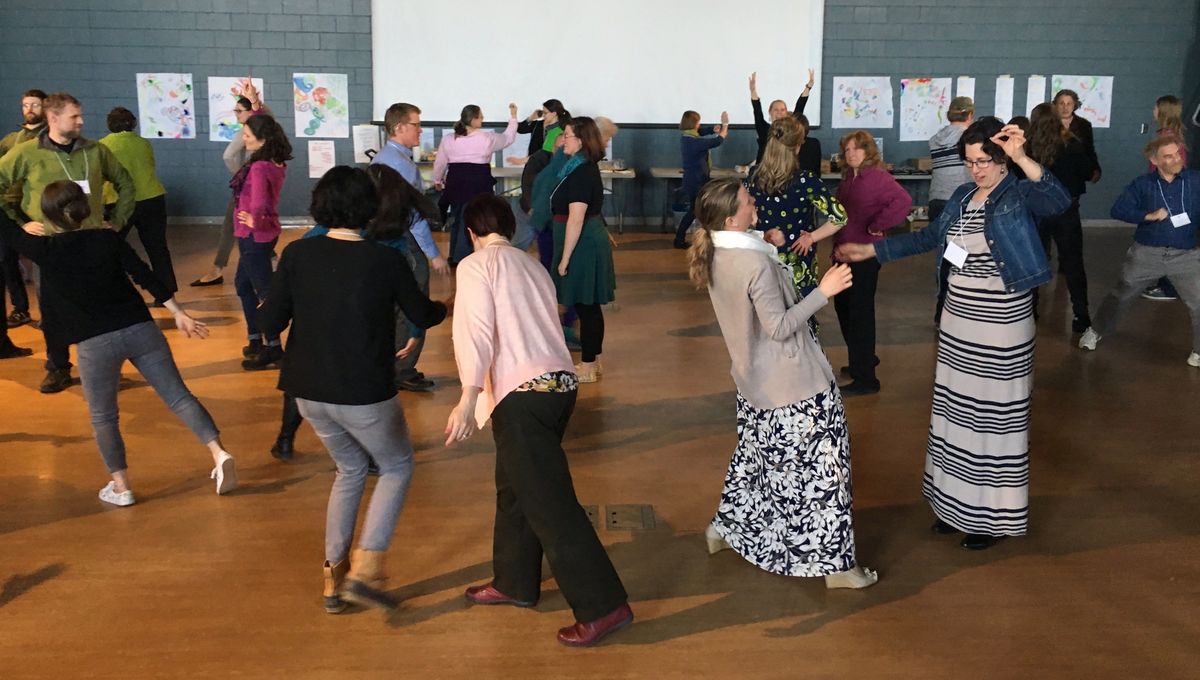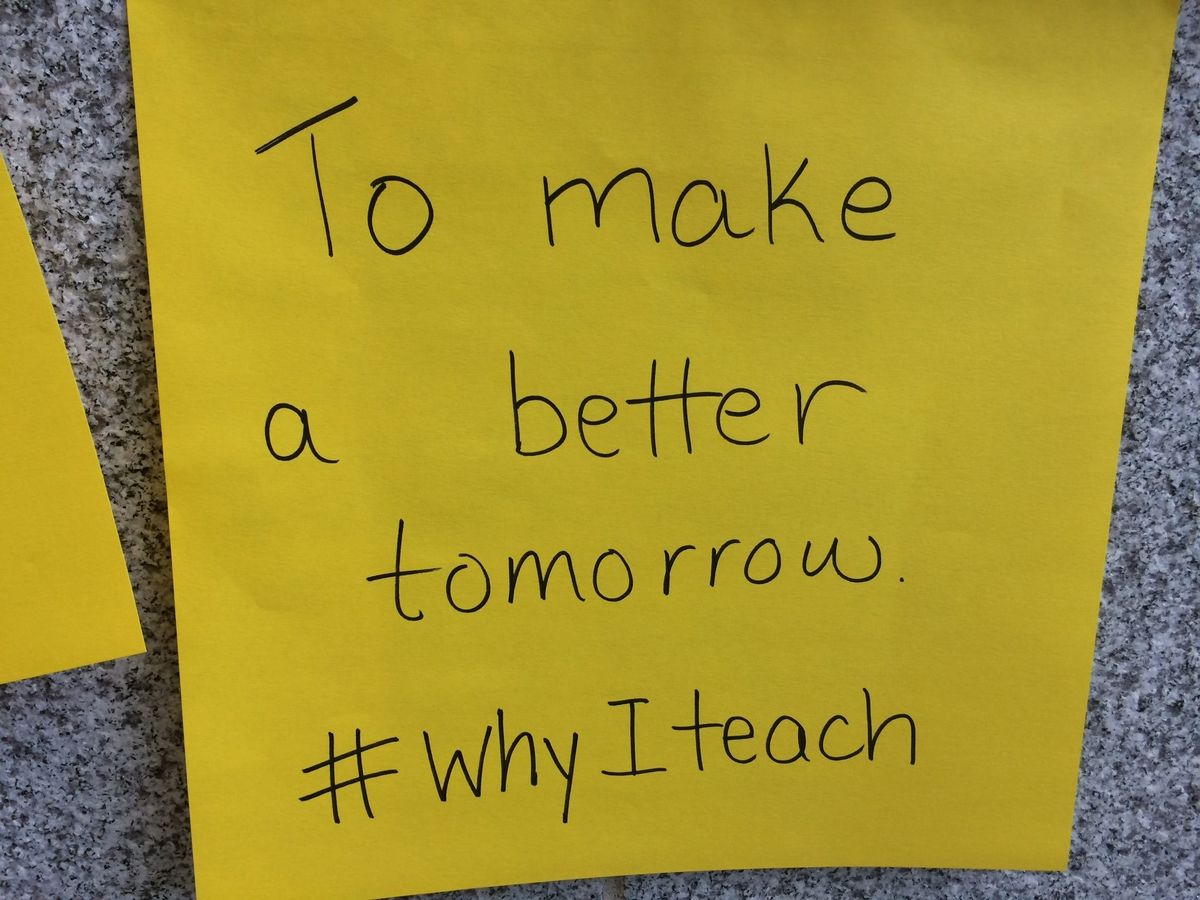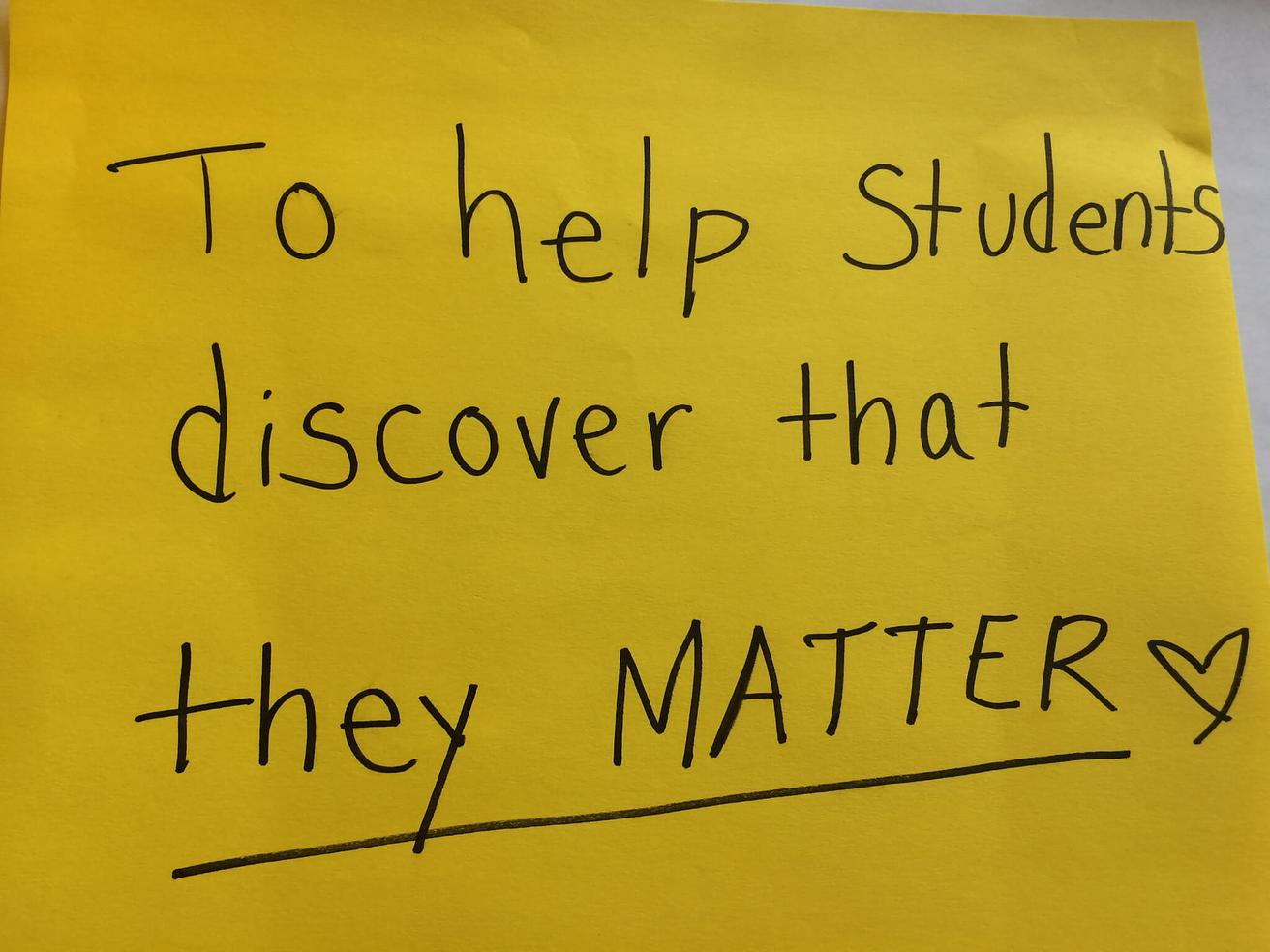During the last 10 years in the state of Maine, in the United States, many conversations at the state policy and local level have taken place around personalized learning, student-centered learning, and proficiency-based learning. All three terms have slightly different meanings but the similarity is, all have the potential of impacting each learner’s success and the future of our state, country, and world.
The state was on a pathway of requiring that every student exhibit fulfillment of the learning standards in Visual and Performing Arts, World Languages, English, Math, Science & Technology, Social Studies, Health Education & Physical Education, and Career & Education Development. All eight content areas are critical to help us grow into engaged and contributing citizens. Most importantly in this proposed learning system the ownership was to be shared empowerment for students to “own” their learning. Teachers would shift from the disseminator of wisdom and become the ‘guide on the side’ providing instruction and support for student learning - an effort to realize student-centered learning. In my thinking, this would lead us to meeting the needs of every 21st century learner helping them to realize their full potential.
What went wrong?
Differences of opinions, lack of understanding, poor communication, attitudes stuck in the past, and decision-makers with little connection to classrooms and students. At the end of the day, it was decided to hold onto past practices. The legislation was watered down and each of the school districts across the state is now determining how to approach proficiency-based learning.
There is good news
Even with all this underway one group didn’t lose site of the value of transforming classrooms to a more student-centered environment and attention to assessment.
The Maine Arts Leadership Initiative (MALI) has been bringing visual and performing arts educators together since 2010. Originally established as the Maine Arts Assessment Initiative with the mission: Creating an environment in Maine where quality assessment in arts education is an integral part of the work all arts educators do to deepen student learning in the arts. In fact, MALI includes in their list of eight “Belief Statements” this definition: Student-Centered Learning encourages and empowers students to become independent learners, ultimately taking charge of their own education. Experiences within the learning environment are active, collaborative, engaging, and support students to explore their artistic processes in meaningful and purposeful ways.

Personalized learning and assessment have always been central to arts education. MALI has provided over 400 professional development opportunities for Maine arts educators to expand on their thinking and build and shift their practices to meet the needs of all learners. MALI helps to clarify the purpose of student-centered learning and supports teacher leaders in designing effective assessments that provide information to both the student and teacher. For example, a student learns to use the tools of printmaking while making prints. As their skills increase more complex ideas are brought in and soon the layering of colors enhances their prints; learning foundational printmaking techniques and growing from there. The learning leads to refection (assessment) and circles back to deeper learning. One informs the other. Self-assessment and teacher assessment are naturally built into the process. The student continues to build on their learning as they learn to make decisions, the teacher continues to improve their instruction. The portfolio collection provides a body of work to review and reflect on and shows the student and teacher a clear picture of personal growth.
Why is this important?
Much of what a student learns is because of the relationships he/she develops with individual teachers. Healthy relationships lead to students desire to learn and reach their potential. It is at the heart of today’s challenge.
The focus on relationships creates a learning environment where every student can flourish. The ideal learning environment might be different for every learner in a class of 12 or 30 or 100 students. It certainly looks different in a non-traditional educational setting such as a multi-age class, out in a community, on a boat or project-based. Even before the type of environment can be selected, including the student in the decision is critical. What’s important to each learner; listening and watching as they express their needs while they maneuver along their educational pathway is essential. Providing questions and allowing them to explore answers as their needs shift and the world offers more and different learning opportunities and pathways.

What is the curent reality?
In a school with several grade levels and/or teachers, a focus on test scores, a large community, a top down the administration, lack of student motivation and/or parent involvement, eligibility requirements, and so many other factors, what is the reality? Is it realistic to personalize learning? How does one teacher manage it?
What do students think?
We know we can count on students to be honest and share their ideas and give us feedback on topics that impact them.
Sweetland School, an arts-integrated school for students, grades Kindergarten through 8 in Hope, Maine uses a model of reflection that continually provides teachers the opportunity to observe students as they learn and grow. This documentation process informs the next steps for teaching and learning. Competition is not necessary when students are striving for their personal best. They are empowered to be curious and experience the magic in learning every step of the way. Here’s what Sweetland students say about learning:
-
You learn from other people, learn with them, and help them out.
-
The teachers teach you stuff because they know all the stuff that kids don’t know, also teachers learn from kids too!
-
Teachers can see and get an idea of what you want.
-
To be listening and concentrating on what you’re doing.
-
Being together. Talking. Being in a conversation.
-
Being kind to everybody.
-
People should stop and think about being mindful with words.
-
Interruption makes you feel like a shadow, and like no one cares.
-
The safest thing we can have is respect for everything and knowledge. Be aware and respectful of everything.
What have we learned?
The collective work of MALI has provided data on many successes of student-centered learning. We know that the brain research can provide us valuable information to inform our work as educators. We know students need:
-
Clear targets and information
-
Time to process
-
The opportunity to explore, research, and experiment which can lead to failure which leads to deeper learning
-
To be trusted and feel safe
-
To experience success
-
To understand that it is about the process along with the product
-
The chance to get and give feedback, to share their work with an authentic audience
-
To use their voices individually and collaboratively which leads to empowerment to make a difference
Always hopeful
Our challenge is complex – effective personalized learning and assessment - but I know that if we trust the process, lean in with a growth mindset, document student and teacher work, collaborate with like-minded educators, advocate for each student, and never lose sight of what is in the best interest of EVERY LEARNER, that we can climb this mountain together in Maine and beyond. Our future depends on it!
About Argy Nestor
Argy Nestor, a HundrED Ambassador from the United States, serves as the Director of Arts Education at the Maine Arts Commission. Her decisions around programs and policy continue to be driven by the question: What is in the best interest of PreK-grade 12 learners?
One of the Commission's banner education programs is the Maine Arts Leadership Initiative - providing 400 professional development opportunities for Maine arts educators and teacher leaders including PK-12 arts teachers and teaching artists (and growing). The community of learners encourages educators to challenge themselves to collaboratively build on their knowledge and experiences using a Logic Model.
HundrED Ambassadors are the local changemakers, eyes and ears for HundrED, seeking and sharing inspiring innovations in education while building local movements for change. If interested in reaching out the local Ambassador from your region or becoming one yourself, explore our HundrED Ambassadors page.

